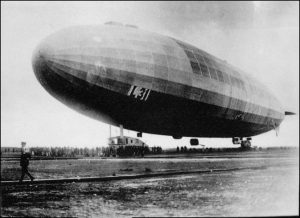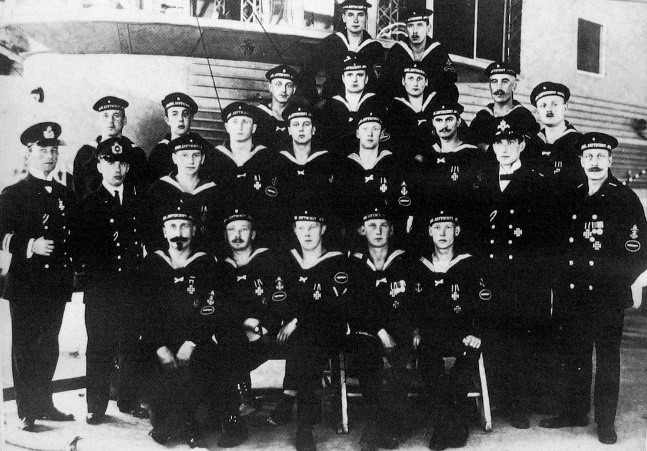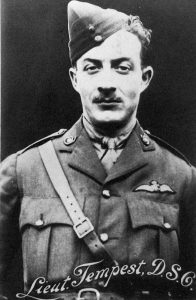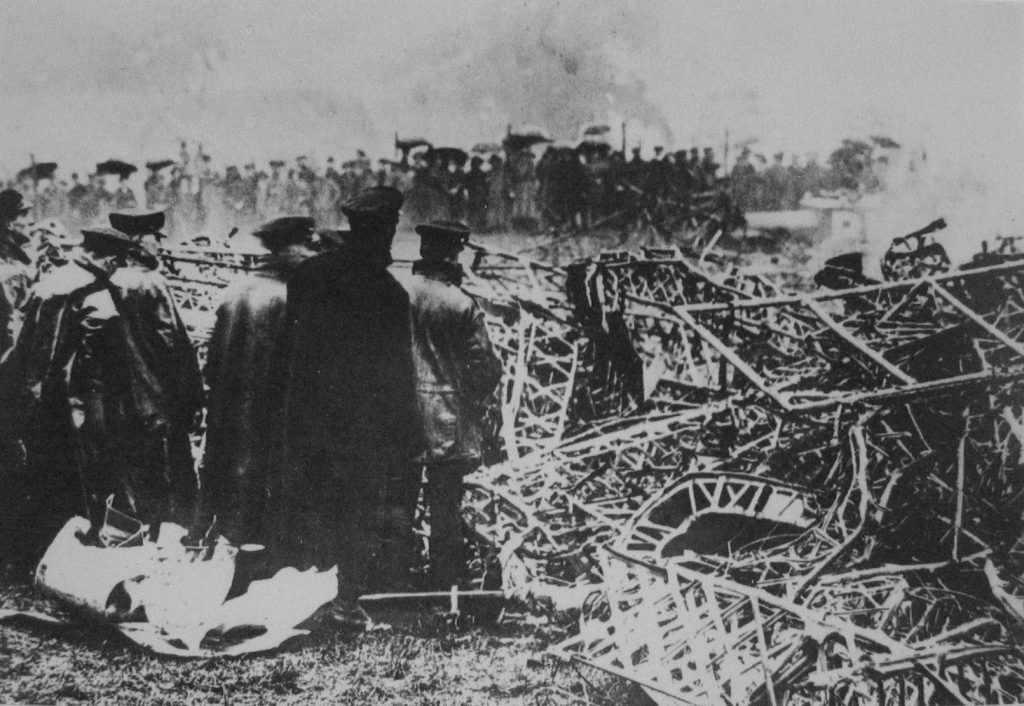The Story of the Potters Bar Zeppelin
by J. Bennett
An extract from the PB&DLHS publication Occasional Papers No 1

Turn of the Tide
Imperial Germany's Zeppelin campaign on Great Britain during the Great War began in January 1915 and reached its climax in the early autumn of the following year. By then Britain's air defences, almost non-existent to start with, had improved sufficiently to make the struggle, if not equal, then at least contestable. A tremendous boost to flagging civilian morale was provided on the night of September 2nd, 1916, when the SL11 became the first German airship to be shot down on British soil.

Millions of spectators from all over the Home Counties witnessed the SL11 descend in flames upon the village of Cuffley. London was in pandemonium; people danced in the streets; train whistles blew; and works-hooters and the sirens of boats on the Thames all blared their triumph.
Three weeks after the Cuffley incident two more German airships were brought down over Britain; and on the night of October 1st a giant new super Zeppelin, the L31, was downed at Potters Bar. On board the L31 was the greatest Zeppelin commander of them all; Kapitan Heinrich Mathy. His loss set the seal against the Kaiser's plans of razing London to the ground by means of his 'Iron Thunderstorm' - a phrase coined by the German propaganda press to refer to Zeppelin raids. German aeroplanes would take over the offensive, but after October 1st, the great Zeppelin fleets of this year never again dared to attack London.
In Mathy's last raid a fleet of eleven German naval Zeppelins had set out for England. The weather was bad, and as the evening wore on squalls in the North Sea blew some of them off course. Three were already returning to base when, at 7.45 pm, Mathy's L31 passed over the Cross Sand lightship still heading west. Soon afterwards five more Zeppelins were spotted over Lincolnshire and Norfolk. They were floundering, encrusted with ice. Mathy, however, was gifted with strong nerves and a superb navigational sense. British ground observers noted his course - he was resolutely proceeding SSW.
But two hours later, Mathy's nerve must have suddenly failed him for he made an uncharacteristic error. At that time, unseen by the ground observers his L31 had been approaching the ring of AA gun defences around North London. Then Mathy's Zeppelin was caught and held in the scanning beam of a solitary searchlight, and in its efforts to escape it veered off abruptly to the north-west. It has been said that if Mathy had dismissed the fairly remote possibility of being brought down by shellfire and had proceeded directly across London rather than changing course he might well have survived, as the slow-climbing British aeroplanes sent up to intercept would then not have achieved their attacking altitude in time.

Among those intercepting pilots was twenty-six-year-old 2nd Lt. Wulstan Tempest. Tempest had been dining with friends when he received a telephone call ordering him to stand by. As the L31 was approaching the Northern outskirts of London, Tempest's black-doped BE 2c biplane was already climbing steadily out of ground fog into icy darkness. At that time Tempest had no idea he would be attacking a Zeppelin within the hour; rather he had anticipated a routine night on patrol, and after levelling off he flew towards a patrolling area ever south-west London.
The time was now 11.40 pm, and fifteen miles to the north, Mathy was in severe trouble. His Zeppelin was now held in the concentrated light of several searchlight beams, and this enabled the ground gunners to direct their fire more accurately. The L31 bucked and rolled in the blast of anti-aircraft shell-bursts and, somewhat belatedly, Mathy must then have decided to abort his mission. To lighten his load, he would have pushed the 'collective' button which sent bombs tumbling down in rapid succession to damage 304 houses and six and a half acres of glasshouses in Cheshunt.
Iron thunderstorm meets a Tempest

The result of shooting down own of L31
The Museum houses an extensive collection of Zeppelin related items and has for sale its own publications and other books on the Zeppelin.
